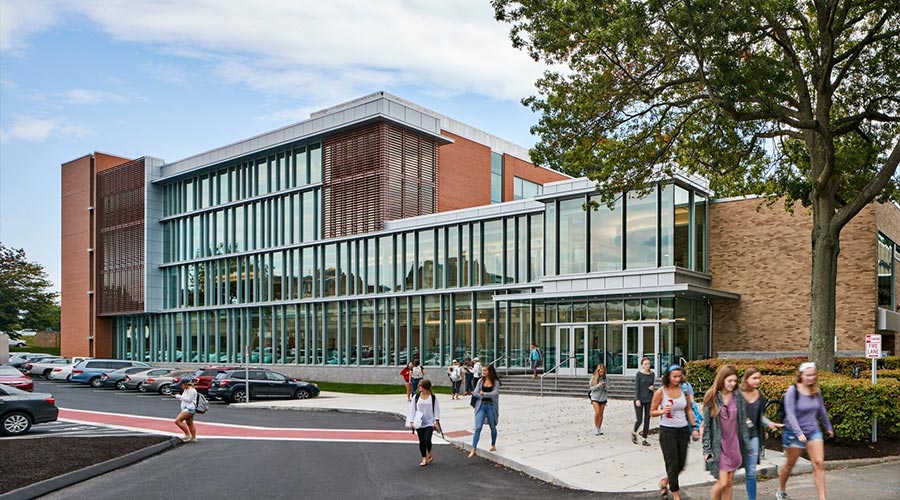
Fairfield University, via a combination of dynamic leadership and institutional patience, has created what can be understood today as a comprehensive and remarkable beacon of sustainability when it comes to higher education — particularly when it comes to on-campus initiatives and effort. Over a decade ago, Candido Rosario, the Director of Custodial Services at New York-based Fairfield University, made a decision that to truly make a difference in the community, a campus-wide commitment had to be made; pieces of which would take years to show their return on investment (ROI), but the patience was required.
Rosario’s strategic vision and the steadfast dedication of his team have since transformed the university's waste management and recycling initiatives, establishing a robust model that other institutions can emulate. But that’s only where the program begins. The university's environmental stewardship efforts also encompass sustainable building practices, with a special focus on energy efficiency and responsible construction.
Some Patience Required
Early on, Rosario recognized that a truly effective sustainability program extends far beyond the mere placement of recycling bins. It necessitates a holistic, integrated approach that engages the entire campus community and fosters a culture of environmental consciousness.
Accomplishing this is easier said than done. The initial challenge was to shift the prevailing perception of waste management from a routine operational task into a fundamental component of the university's commitment to ecological responsibility. The bedrock of Fairfield's success eventually came with its meticulously crafted waste diversion strategy.
This strategy consisted of a multi-faceted approach, attempting to address waste reduction at every stage. To start, Rosario and his team implemented a system of strategically positioned, clearly labeled recycling and waste receptacles, ensuring that students, faculty, and staff could effortlessly (or, at least, with minimal effort) participate in the program. The clarity and consistency of these systems were paramount, as they worked to minimize confusion and maximize participation.
A crucial component of the program’s potential efficacy was the dedicated involvement of the custodial services team. Rosario recognized the importance of empowering the staff with the knowledge and tools necessary to effectively manage the university's waste streams. This involved comprehensive training on proper waste segregation, the use of specialized equipment, and the significance of their role in the university's sustainability objectives. The team's commitment has not only enhanced the efficiency of the program but has also elevated their professional standing within the university community.
The implementation of a single-stream recycling system further simplified the recycling process, making it more accessible and convenient for the campus community. While this system offers numerous benefits, Rosario and his team also recognized the importance of partnering with a reliable recycling provider to ensure the efficient processing of materials. This partnership has been instrumental in maintaining the integrity of the recycling program and minimizing contamination.
Stop Waste at the Source
Beyond recycling, Fairfield University has decided to place a strong emphasis on waste reduction at the source. This has involved initiatives such as promoting the use of reusable containers, reducing paper consumption, and expanding composting programs. The university's dining services, for instance, have transitioned to compostable packaging, significantly reducing the amount of single-use waste generated.
Education and engagement have also been crucial when it comes to fostering a culture of sustainability at Fairfield — and cultural change is a significant part of the success or failure of any sustainability project.
Rosario and the team have collaborated with the university's sustainability office to develop and implement educational programs that raise awareness about waste reduction and recycling. These programs have historically included workshops, events, and informational campaigns that encourage students, faculty, and staff to adopt sustainable practices in their daily lives.
The university's commitment to sustainability also extends to its procurement practices. Fairfield prioritizes the purchase of environmentally friendly products, including cleaning supplies, paper products, and furniture. This not only reduces the university's environmental impact, but also supports the growth of a sustainable marketplace.
Fairfield University's green cleaning program is yet another testament to its commitment to sustainability. The program utilizes environmentally friendly cleaning products and practices, creating a healthier indoor environment for the campus community.
“The janitorial team has been trained on the proper use of these products,” emphasizes Rosario. “It ensures that cleaning tasks are performed effectively while minimizing the use of harsh chemicals.”
University Commits to Sustainable Building Practices

 The Down and Dirty on Cleaning in Virus Season
The Down and Dirty on Cleaning in Virus Season How Surfactant Use is Expanding in Commercial Cleaning
How Surfactant Use is Expanding in Commercial Cleaning